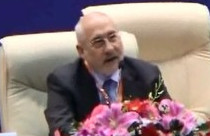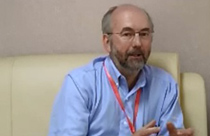
. > RESEARCH > JOURNALISM
Innovation accelerates transformation of traditional media
Author : YAO XIAODAN and WANG XIAOZHEN Source : Chinese Social Sciences Today 2019-07-24
From July 6 to 7, a forum on the development of journalism and communication was held in Beijing. Scholars and experts discussed issues centering on the history and experience of journalism since the founding of the People’s Republic of China and how to promote the progress of journalism and communication.
Zhi Tingrong, executive dean of the School of Journalism and Communication at Jinan University, said that news media serve a communication and organization function along with economic, social and cultural functions. New features lie at the core of building a new type of mainstream media. The mainstream media should contribute to the progress of the public, the country and the whole society. Through research, academia has deepened our understanding of media’s social functions as the foundation of media’s economic function.
Zhou Yong, secretary of the Party Committee of the CPC of the School of Journalism and Communication at Renmin University of China, said that mass culture is shifting toward a visual orientation. The universality of graphic communication helps mass culture bridge the perception gap. Each technological breakthrough has brought about huge changes to media. Traditional TV’s fleeting and linear mode of communication makes it a medium with time as its major resource. As new media emerges, the use of the internet enables telecasts to expand into virtual space.
Meanwhile, the importance of the time resource to TV is gradually fading with the emergence of new technologies such as online video and interactive near video on demand (NVOD). Under the circumstances of new media, the logic of telecasts is undergoing a revolution, transforming from the linearity of time to the non-linearity of space and from the limited resource of time to the infinite resource of space.
He added that, in the future, the development of audiovisual communication will be influenced by the structural impact brought about by new technologies, multiple social forces, the production and communication of information according to various situations, and rich industrial chains. Research on audiovisual communication should focus on industries and policies, practices and application, with the core of the research centered in reconstructing the basic theoretical systems of new media’s audiovisual communication.
Lü Weizhou, deputy editor-in-chief of the Social Sciences in China Press (SSCP), said that, although journalism and communication studies is a young discipline, through the efforts of scholars, it has progressed and made profound contributions to China’s prosperity. The discipline has occupied an increasingly significant position in philosophy and the social sciences. With a strong concentration in journalism and communication, SSCP hopes that the forums it holds on journalism and communication will become high-quality ones. SSCP will join hands with experts to promote the building of discipline systems, academic systems and discourse systems, contributing to the prosperity of Chinese philosophy and social sciences.
Interview with Wang Gungwu on significance of studying overseas Chinese
Wang Gungwu is a distinguished Australian historian who studies overseas Chinese. He currently works at the Faculty o...
-
On the rat/mouse of the zodiac
2020-02-20
-
Regional development calls for Huaihe culture’s soft power
2020-01-10
-
Archaeological discoveries unveil Maritime Silk Road
2020-01-06
-
China’s industrial art printing
2019-12-10
-
Yue-Gan Ancient Road: A journey into Hakka history
2019-05-13
-
The Lantern Festival in Dream of the Red Chamber
2019-02-18













 2011-2013 by www.cssn.cn. All Rights Reserved
2011-2013 by www.cssn.cn. All Rights Reserved